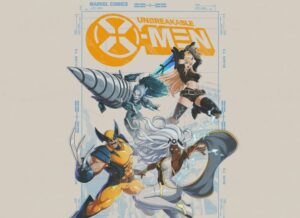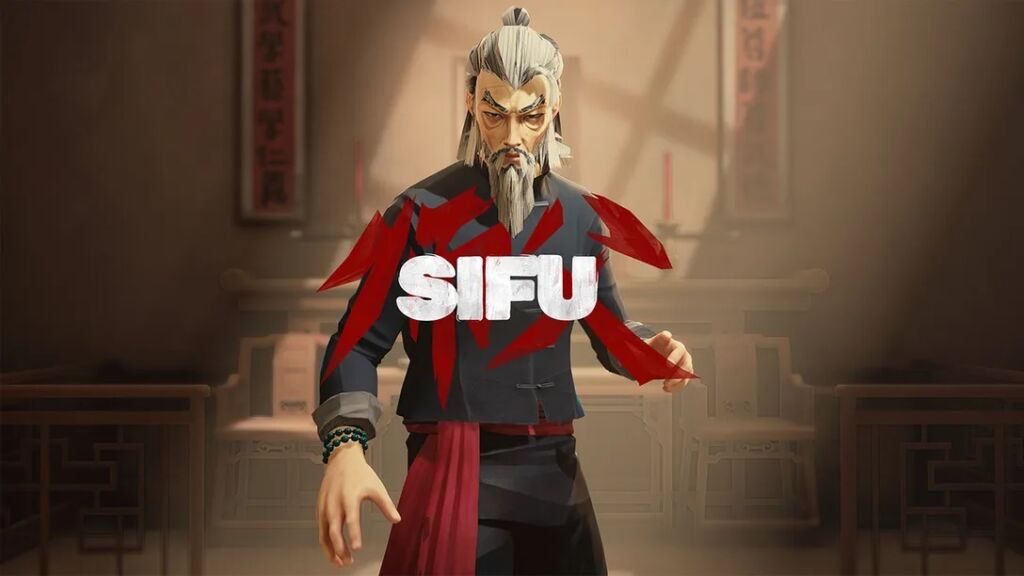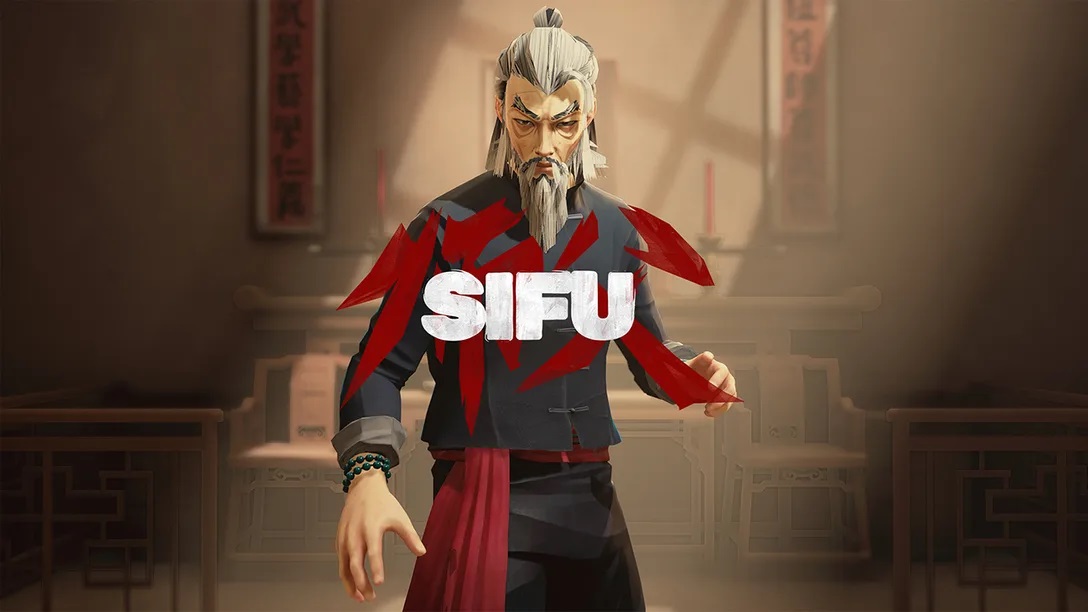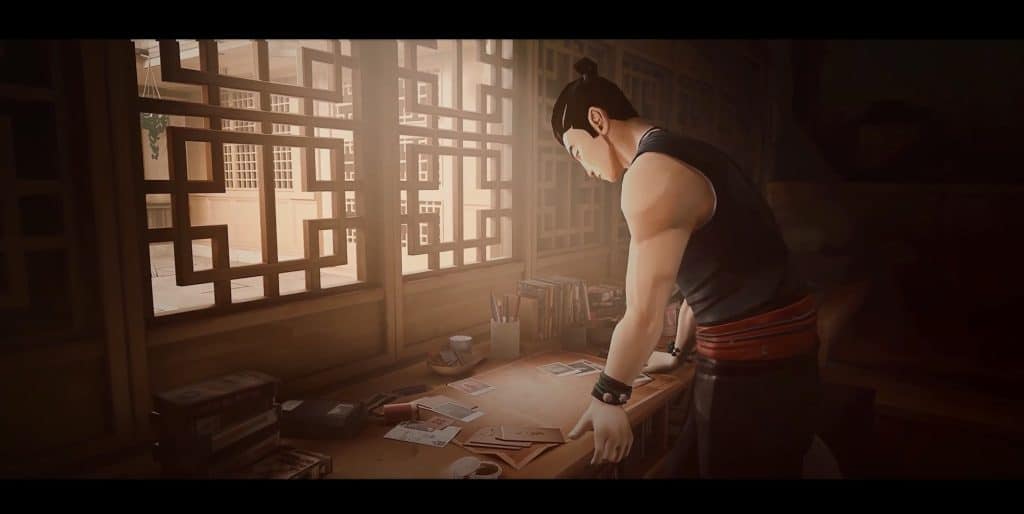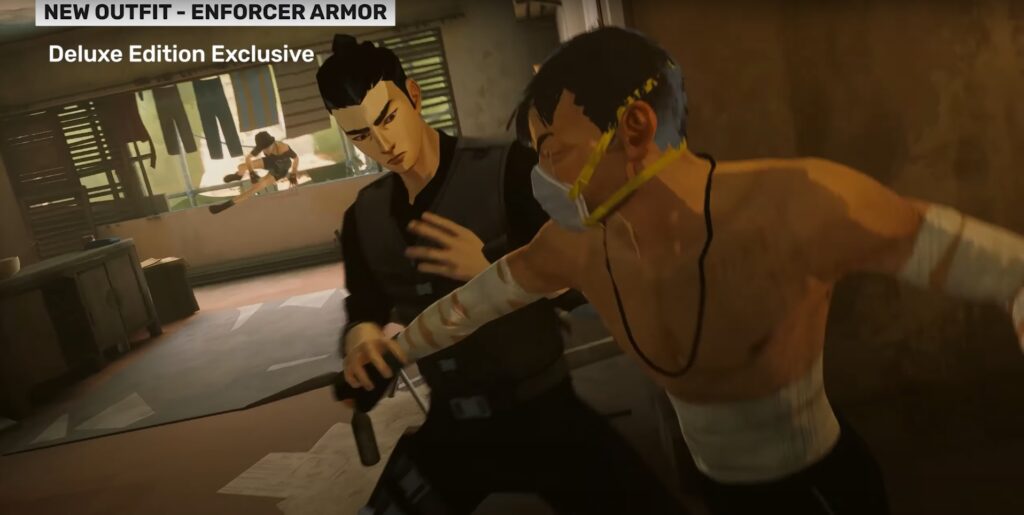How long has it been since a great single-player kung fu game came out? The last one I can recall is Sleeping Dogs almost a decade ago. The whole genre is practically a relic of a bygone era in gaming. An era featuring classics such as God Hand, Enter The Matrix, and Shenmue.
Sifu, made by indie development team Sloclap, feels like a resurrection of this period in gaming, albeit with a slight roguelike twist and one of the most intensely challenging, yet rewarding, combat systems in an action game.
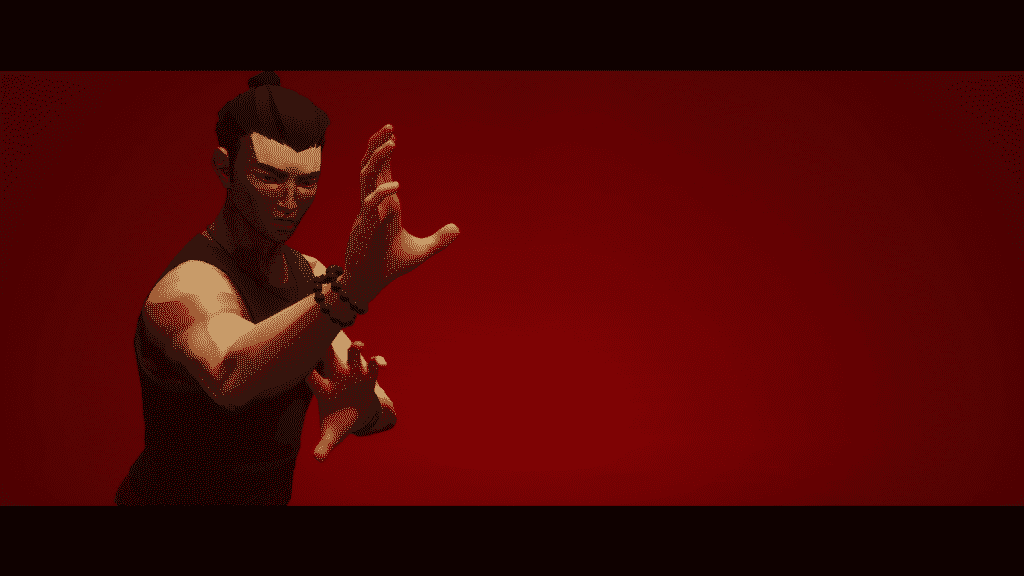
Our story opens with the main protagonist witnessing the murder of his family at the hands of five martial artists—presumably, the disciples of your father. Our protagonist is also murdered; however, a mystical talisman resurrects them. Subsequently, the protagonist vows to seek vengeance for their family. But as we all know, a quest for revenge rarely goes well. Sifu’s plot mixes Batman’s origin story with the plot of Kill Bill and then tosses in a bevy of kung fu story tropes about family and revenge. Its cliche, pulpy, takes itself very seriously, and it’s absolutely perfect for this game.
What brings the world to life is Sifu’s art direction which drips with style and feels authentic to kung fu movies you would see on the big screen. Your quest for vengeance will take you through five missions, each level featuring a striking aesthetic, from neon-soaked streets and nightclubs to financial buildings where 24 karat gold sunlight beams through its window. Every mission features inhabitants well versed in the art of fighting. Who knew Dave from accounting was secretly a Pak Mei master this whole time?
Even more striking is the excellent cinematography in SIfu. Sloclap pays homage to modern kung fu classic movies with corridor fight scenes reminiscent of Oldboy and a whole boss fight that looked straight out of Kill Bill Volume 1.
The camera work, the colorwork, and the solid visual style all come together very nicely. As someone who has watched their fair share of martial arts movies, Sifu checked all of the boxes for me.
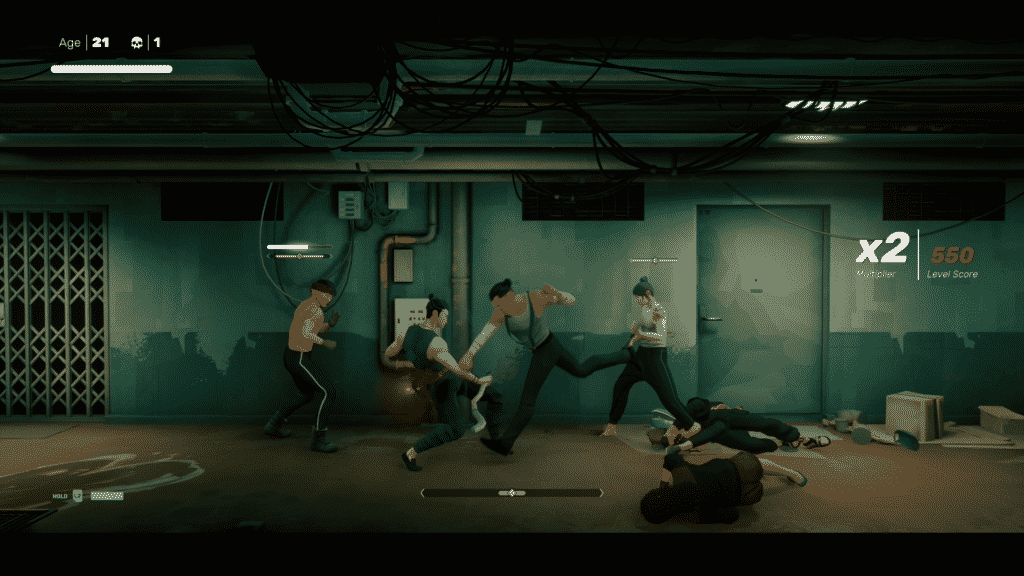
The occasionally wonky camera persists across these action games, which gets frustrating in Sifu.
Sometimes you will get boxed into a corner, and when that happens, the camera pulls in extremely close, obscuring all vision. At that point, it’s an open season of beatdowns as you have no idea what’s going on and where to dodge. One boss has a habit of running you into walls thanks to their long combos, and it’s safe to say that one was the most frustrating one for reasons slightly out of my own control.
Sifu’s main gimmick is its aging mechanic, where every death you age according to your death count. One death is met with aging by one year, two deaths are met with two years, and so on. The older you get, the stronger you become. However, the trade-off for more damage is less overall health due to your age. It’s a neat gameplay element utilizing those martial arts themes of age being a strength.
You can never go back in age, and each mission only registers the youngest age you reached with the corresponding death count. If you get to the second mission at age 65 with a death count of 7, that is all you have to carry you to the end of the game unless you start over and try to do better.
This aging mechanic is a game of weighing your pros and cons as the results of a bad run profoundly impact the rest of the game. Are you confident enough in your abilities to make it to the end as an old man, or is it time to go back a few levels to get a better run that will put you in a more favorable position at later levels? These are questions you will keep asking yourself as the game puts you through trials by fire with its combat system.
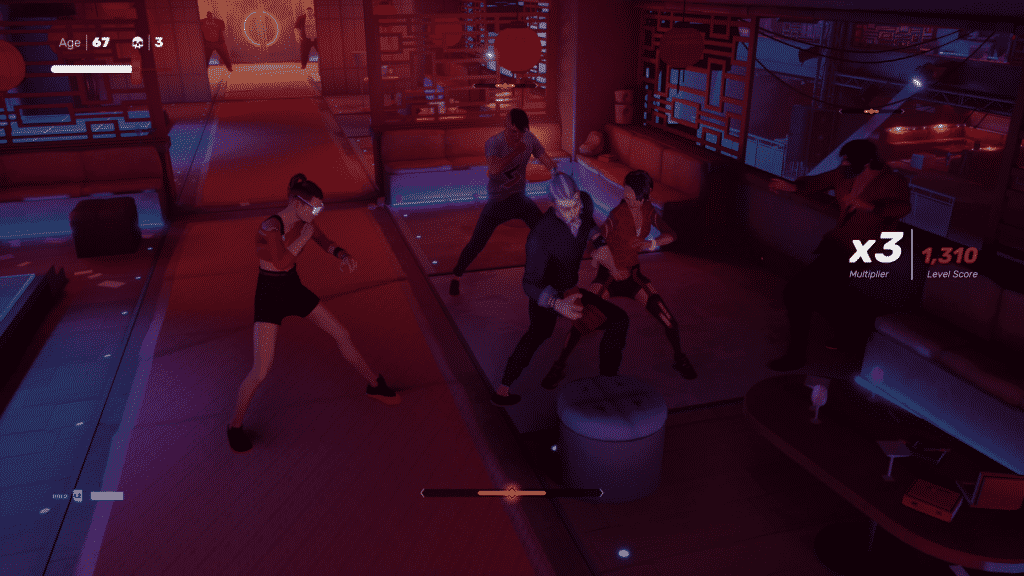
Sifu is an immensely challenging game. It almost feels like playing God’s Hand. Concepts like invincibility frames, which many action games include, are practically non-existent here. The margin for error in Sifu is extremely low. It’s do or die.
Even at the hearty age of 20, any regular enemy has the potential to kill you very quickly. Even quicker if they’re wielding a weapon. And unless you’re looking to take an express trip to the senior center, don’t even try to fight more than two enemies at once.
In as many ways as Sifu is about being good at fighting, it is also a mental game; you have to think a lot as you fight. This game is all about being great at reading an enemy’s telegraphed attacks and dodging in the right direction or parrying at the right moment. Knowing when to throw a punch or when to toss out light or heavy attacks are also points of consideration. Needless to say, there is a lot to dig into with Sifu’s combat, and it can take a while to start mastering your move set. The skill ceiling is high, and the consequences of your mistakes are even higher.
What happens when you age out and it’s game over? Well, I hope you didn’t grow too fond of those skills you unlocked because all of them are wiped off your character, and you restart the level from the beginning unless you reach the shortcut. Permanent skill unlocks, which stay with you even after death, require you to purchase that skill 5 times. That isn’t too terrible for a few basic skills that cost 500 XP, but for the actual helpful skills like slide tackles, or multi enemy combos that give you some breathing room in an overall claustrophobic game, the 1000+ XP asking price coupled with a 5x purchase is a tall order. Getting your character to a point where fights feel more advantageous can take a while, which not everyone will enjoy.
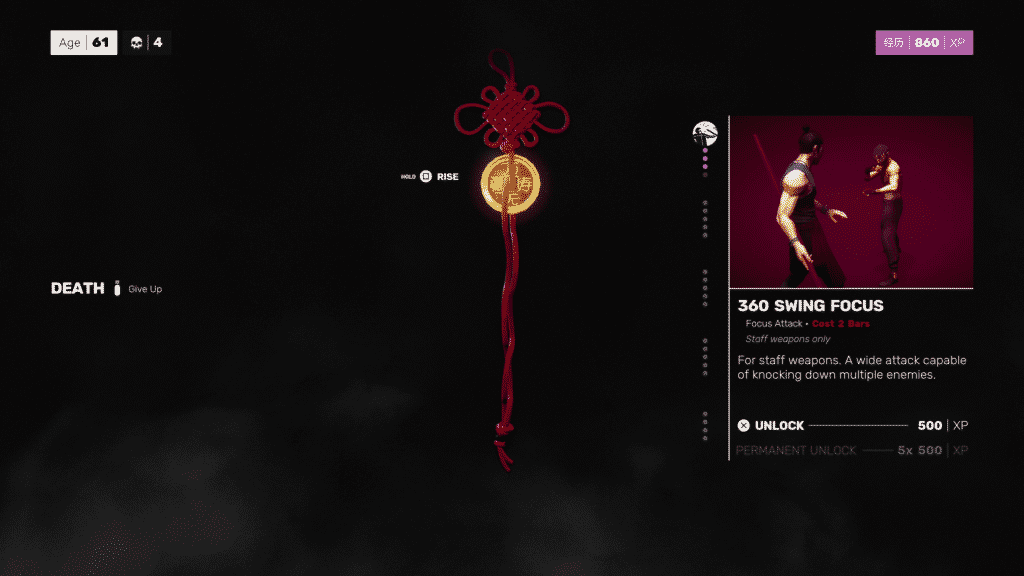
However, these skills are only supplementary; relying on them is a crutch. At the end of the day, YOU are the only one that can get good enough at this game to see it through to the end. And that is where Sifu shines.
There are challenging video games out there, but you can get to the end credits with enough leveling, proper gear, and a little bit of cheesing. However, games like Sifu are all about the player, the controller, and how you master the tools that you’re given.
In a way, playing Sifu made me feel like I had my own kung fu character arc. Every death, I was the fallen hero, losing everything I had worked for repeatedly and getting back on my feet through sheer determination and steely resolve. Except for this time, I knew more about the levels, and my skills are just that more refined.
Sifu’s levels, how they’re laid out, where enemies are located and how each level flows are engrained in my muscle memory at this point. They’re in my headspace somewhere between playing Guitar Hero on expert difficulty and the Orphan of Kos fight from Bloodborne. But that’s because this is what this type of game is; it’s for someone who enjoys a challenge.
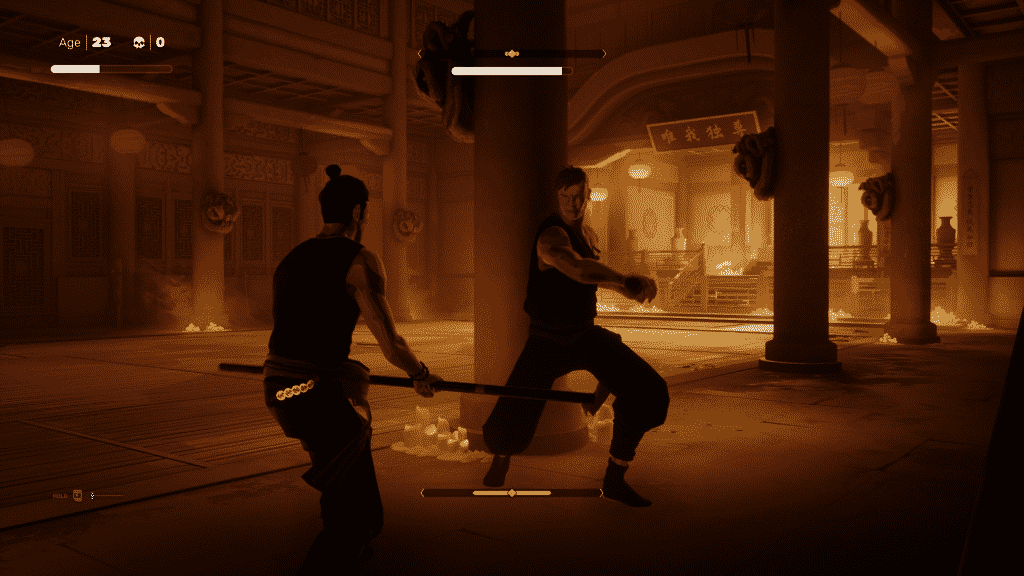
This won’t be everyone’s cup of tea. To succeed in Sifu is to fail. It could be hours of repeating the same two or three levels to build up your permanent skills or attempting to nail the perfect run, which puts you in a great starting position for the next level. Regardless of how you approach the game, you will have to harness your skills as a controller kung fu disciple to get to the end credits. This is where the die and repeat nature of Sifu can end up being too much to bear for some and admittedly becomes quite dull at a certain point.
Sifu wants you to do multiple runs. There are unlockable shortcuts to the bosses, keys that you can find in later levels which unlock new areas in previous levels, and it all culminates in the sense of mastery of each mission. But not everyone will get there so skillfully, and many will probably find themselves quite bored and frustrated at some point.
Die-rinse-repeat style roguelikes stay fresh because they’re always offering you new things to do every run. No two runs will ever play out the same in roguelikes, which makes them so enticing to play.
While Sifu is markedly not a roguelike, it requires doing “runs” and has a cyclical nature akin to that genre. However, nothing new is presented when you start again. As a matter of fact, you don’t even begin at a neutral point because you lose everything that wasn’t permanently unlocked upon death. There are only so many times you can get brutally defeated and lose everything you’ve worked for before you decide that it would be better to turn off the game and try again later.
I just wish that there was something to keep the game feeling fresh instead of the primary cycle of beating up the same 100 henchmen that I have been beating up for the past 10 hours, all so I can make it to the boss, which will probably kill me because I don’t know their attack patterns yet. And I’ll do this song and dance all over again for the next hour or two.
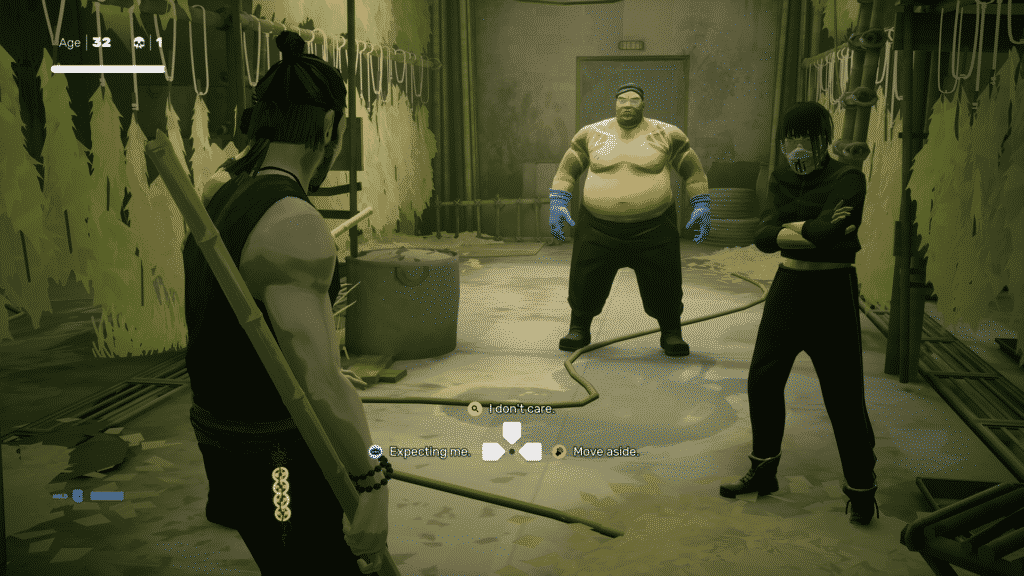
It can be an exhausting game to play.
Even though I just spent 350 words explaining how frustrating and tiresome Sifu could potentially be, I still want to jump back in and keep playing. The combat system is just that good. Everything I detailed about the learning curve and repetition is more of a warning to the uninitiated than an overall negative about the game. Once SIfu clicks with you, these issues are secondary.
Sifu is an immensely rewarding game to play, should you take the challenge. Overall, my experience with it was like when Mr. Miyagi’s lessons in The Karate Kid finally made sense after so much frustration. Except here, you’re getting beat against the wall repeatedly until you learn what Sifu expects out of you.
When everything falls into place, and you hit that flow-state mastery of Sifu’s combat, it becomes one of the most unique and refreshing action games that we have seen in a while. Add in some beautiful artwork and great homages to kung fu classics, and this game is a winner. Its challenging and repetitious nature won’t be for everybody; however, If you’re in the market for a game with mechanics that you can really sink your teeth into, Sifu is your best bet.


